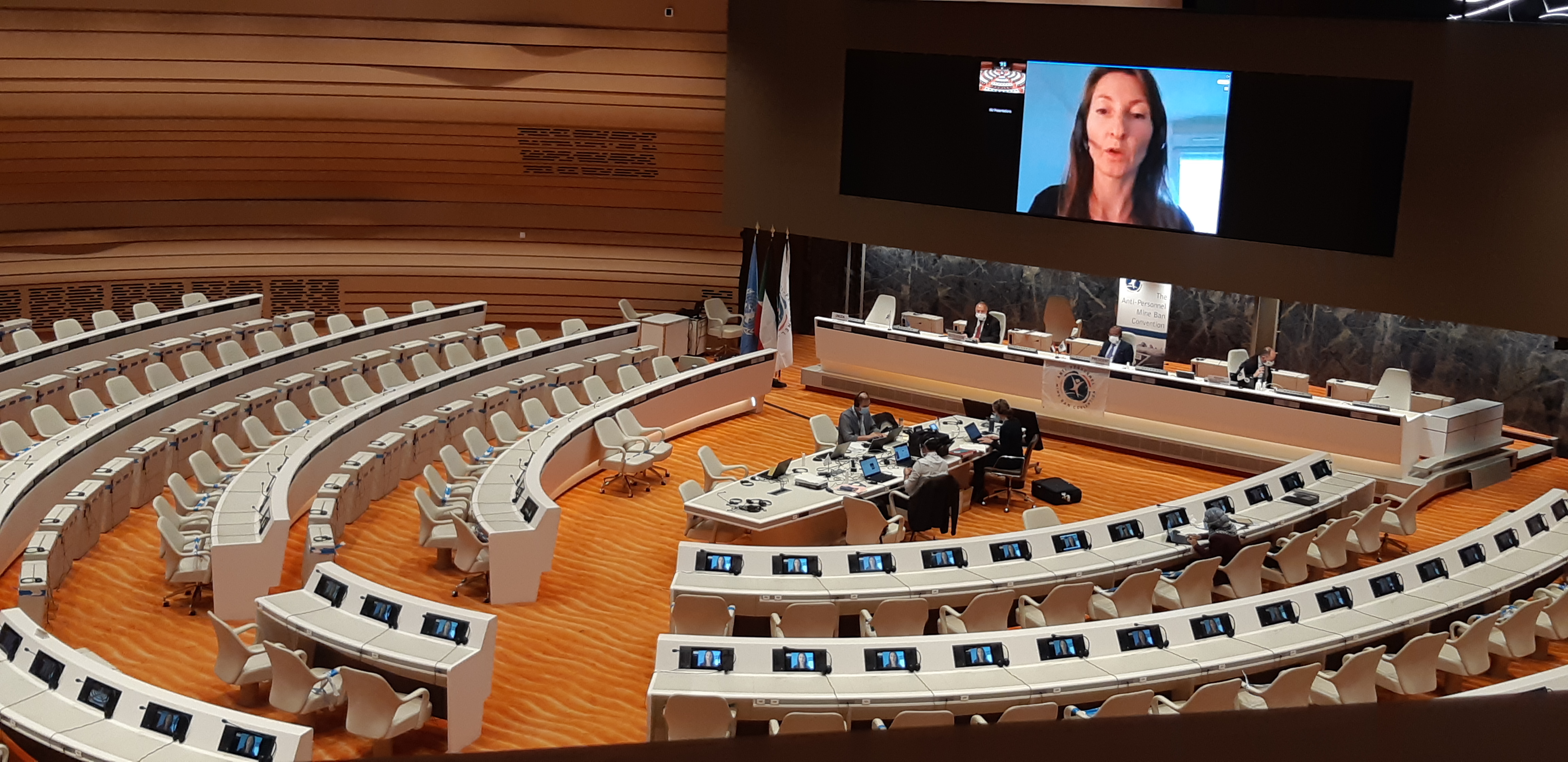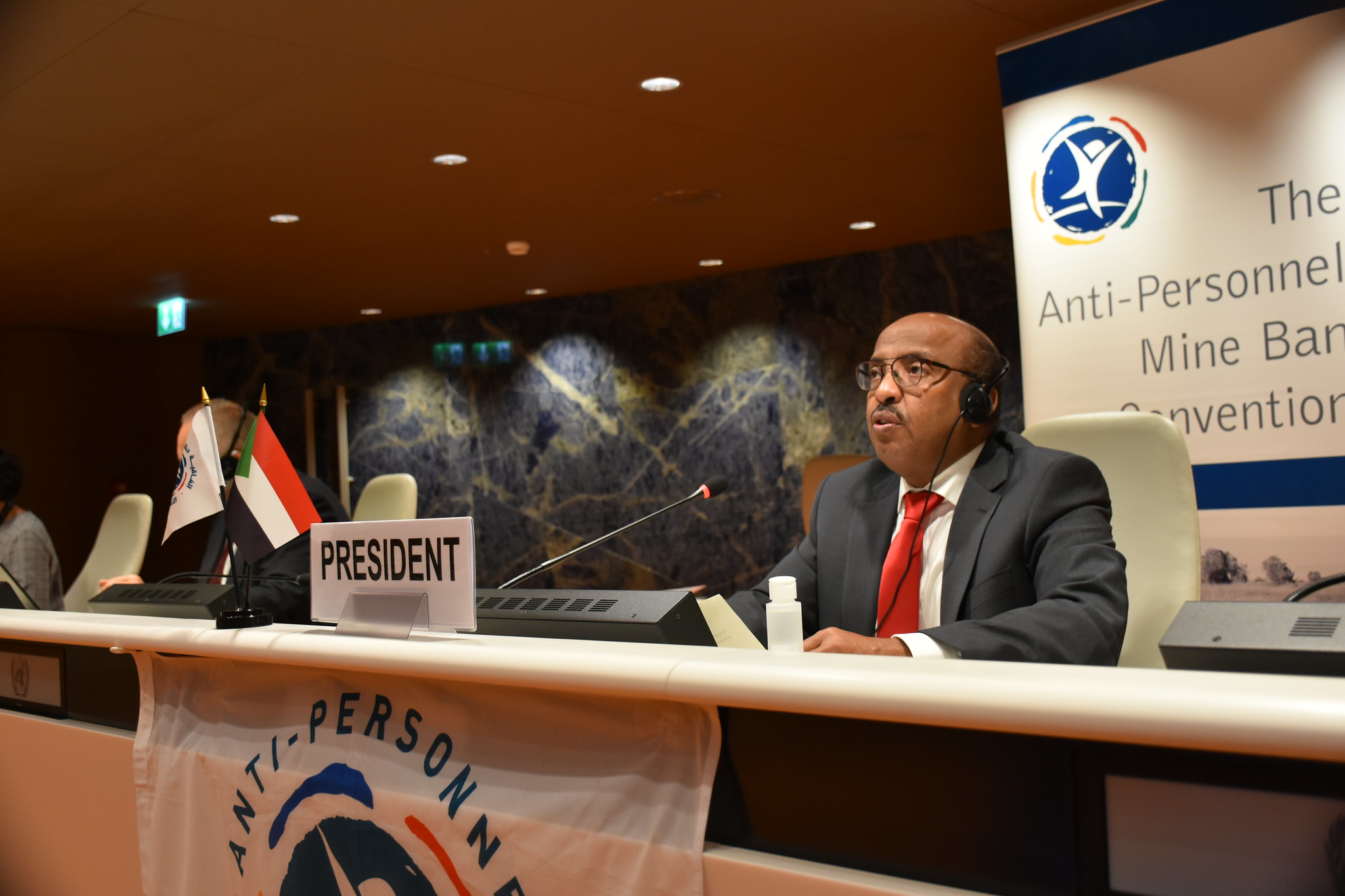|
16.11.2020
Download the press release in pdf | عربى Geneva – Nearly 500 delegates representing States, international and non-governmental organisations have registered for the Eighteenth Meeting of the States Parties (18MSP) to the Anti-Personnel Mine Ban Convention, which due to Covid-19 restrictions in place is being held in virtual format from 16-20 November from Geneva.
The 18MSP started its work after an opening ceremony featuring the Minister of Defence of Sudan H.E Major Gen. Ibrahim Yassin, who also spoke on the importance of cooperation and assistance. “It is important to remember that global circumstances in which we live today, have cast a shadow over ways to attract support for mine action programs. This will require devising new methods for funding”, added the Minister. The growing use and casualties caused by anti-personnel mines of an improvised nature, almost exclusively, at the hands of non-state armed actors is high on the Meeting’s agenda.
These messages were echoed by the Vice President of the International Committee of the Red Cross Gilles Carbonnier, the Head of Delegation of the International Campaign to Ban Landmines (and Head of Human Rights Watch Arms Division) Steve Goose, and Luz Dary Landazury of Colombia in representation of mine survivors, among others. The 18MSP comes on the heel of the 2020 Landmine Monitor, a civil society report indicating use of mines in six States --four of them not party to the Convention- by mostly non-state actors, with children still bearing the brunt of the use of these inhumane weapons.
The United Kingdom's Ambassador to the Conference of Disarmament is expected to table a declaration of mine clearance completion later in the week. Bosnia-Herzegovina, Colombia, the Democratic Republic of the Congo, Niger, Senegal, South Sudan and Ukraine requested extensions of their mine clearance deadlines. Mauritania requested that a new deadline be set due to the discovery of previously unknown mined areas, while Nigeria requested the same to address newly-mined areas. The decisions will be handed out on 20 November, the last day of the meeting. Editorial note: The Anti-Personnel Mine Ban Convention also known as the Ottawa Convention was adopted in 1997 and entered into force on 1 March 1999. There are 164 States Parties representing more than 80% of the countries in the world; together these States have destroyed almost 53 million stockpiled anti-personnel mines and released millions of square meters of land that were once contaminated. The Convention was the first multilateral treaty to take into consideration the rights of a weapon’s victims.For more information, isu(at)apminebanconvention.org |



 The Meeting is chaired by the Deputy Permanent Representative of Sudan H.E. Osman Abufatima Adam Mohammed. The Ambassador called on States in a position to do so, to provide assistance towards mine-affected countries. “It is important that your support not only continues but is redoubled to make up for any lost time caused by the global pandemic,” said the Ambassador.
The Meeting is chaired by the Deputy Permanent Representative of Sudan H.E. Osman Abufatima Adam Mohammed. The Ambassador called on States in a position to do so, to provide assistance towards mine-affected countries. “It is important that your support not only continues but is redoubled to make up for any lost time caused by the global pandemic,” said the Ambassador.